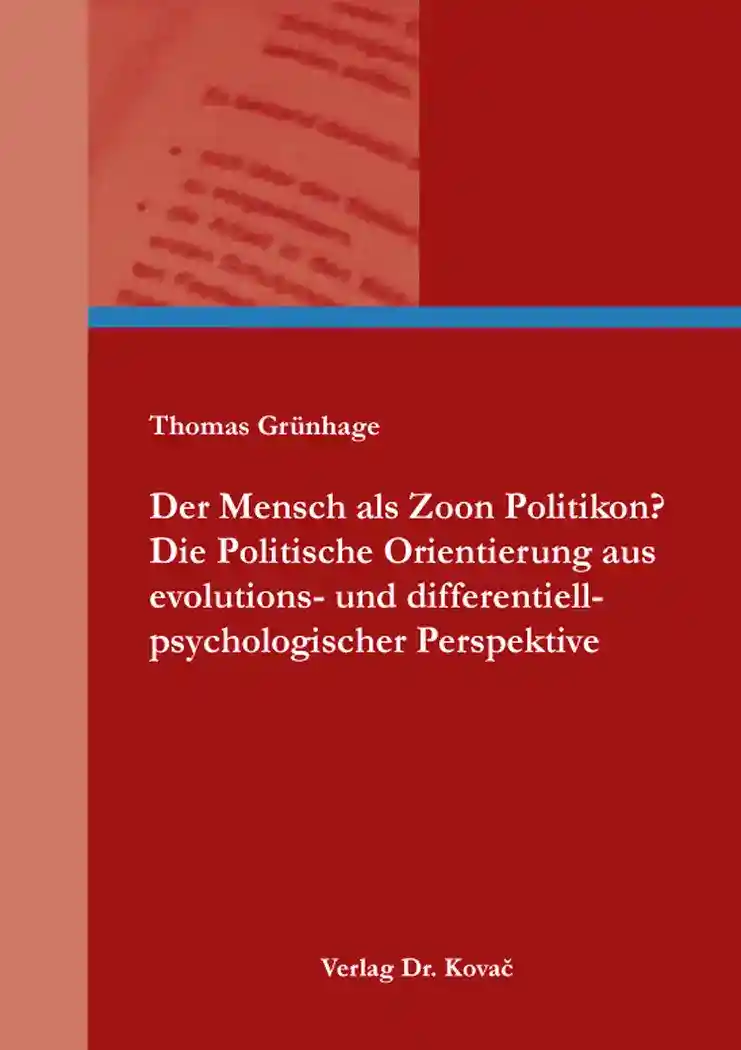Thomas GrünhageDer Mensch als Zoon Politikon? Die Politische Orientierung aus evolutions- und differentiell-psychologischer Perspektive
Schriften zur differenziellen Psychologie, volume 4
Hamburg 2022, 352 pages
ISBN 978-3-339-13164-5 (print) |ISBN 978-3-339-13165-2 (eBook)
About this book deutschenglish
Political conflict is a universal feature of human societies. But what are the underlying factors for differences in political orientation, why do some individuals tend to the right, others to the left? The socialization-centered explanatory approaches of political science have only limited explanatory value here, especially in light of convincing findings showing a substantial heritability of political orientations.
Based on these and a variety of psychological models and theories, the author describes a framework-model rooted in evolutionary psychology: Differences in Political Orientation are traced back to evolutionary adaptations that are causally and functionally related to the lives of our ancestors, characterized by small groups: Accordingly, the predisposition to right vs. Left political orientations can be attributed to conserved differences in the expression of two fundamental dimensions: Group relatedness and general cooperativeness.
In six empirical studies, the plausibility of the model is tested and ist explanatory potential for political-psychological phenomena is measured. Here, the author proves substantial correlations of Political Orientation with basal personality traits and phenomena such as trust and cooperativeness in concrete economic games. In addition, it is empirically shown how the evolutionary psychological approach can explain commonly known associations of Political Orientation with other variables such as religiosity and vegetarianism. Lastly, the distribution of populist and conspiracist ideation across the political spectrum is examined, and the right-leaning asymmetry of the latter is explained in terms of evolutionary psychology.
Contrary to what the central role of genetics and evolution might suggest, the author does not sketch a deterministic picture of irresolvable political differences. On the contrary, on the basis of the model, communication strategies and concrete political proposals are elaborated and discussed that effectively address and satisfy people's evolutionarily shaped psychological needs. Also, knowledge of the evolutionary foundations is shown to be suitable for explaining the vehemence of certain political conflicts and for countering misleading framings of political projects.
Keywords
AutoritarismusEvolutionspsychologieHomo politicusIdeologieMoralPolitische OrientierungPsychologieSoziale DominanzorientierungZoon politikonIhr Werk im Verlag Dr. Kovač

Möchten Sie Ihre wissenschaftliche Arbeit publizieren? Erfahren Sie mehr über unsere günstigen Konditionen und unseren Service für Autorinnen und Autoren.
